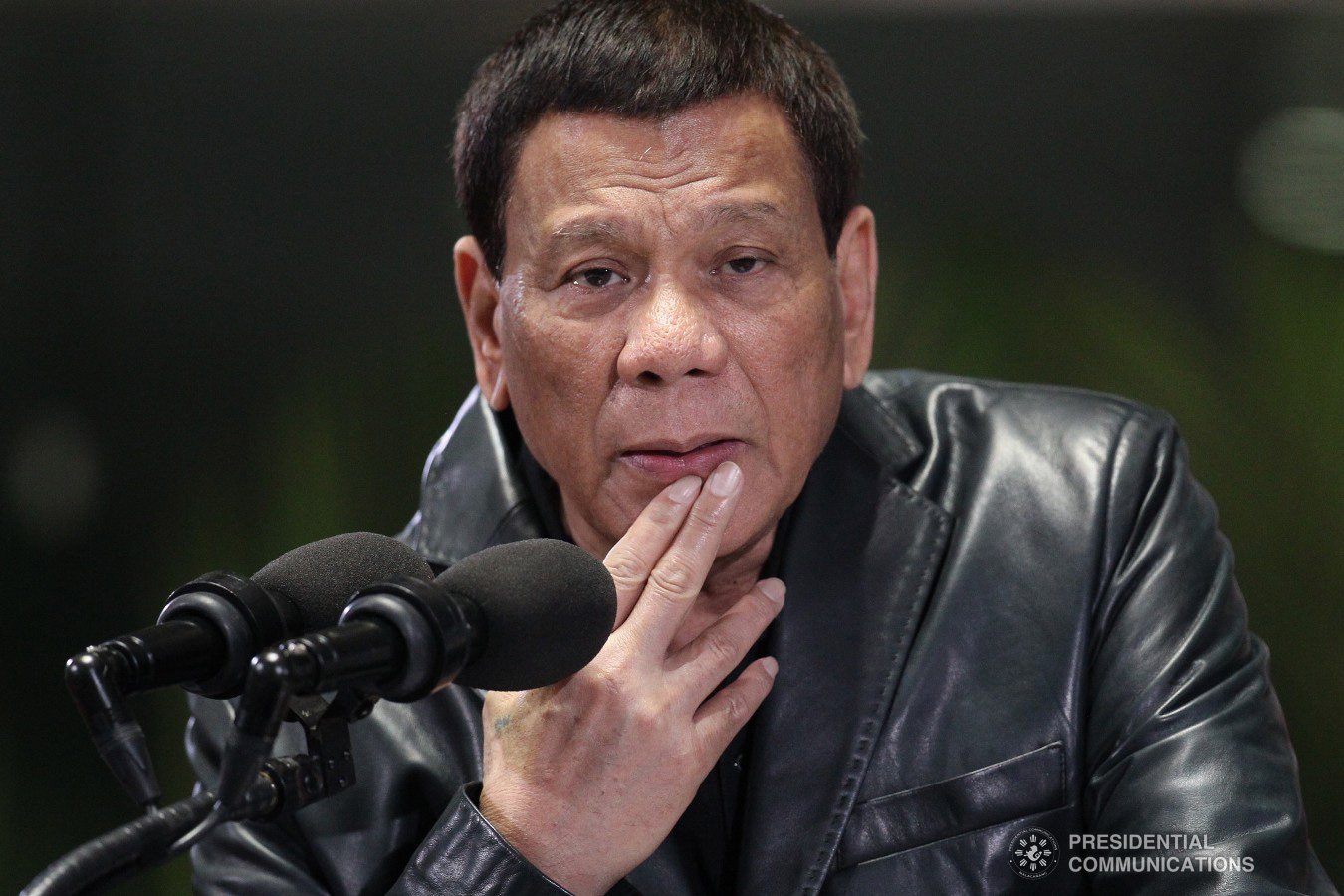By Christian V. Esguerra

ACE MORANDANTE/PRESIDENTIAL PHOTO
There was a time when President Rodrigo Duterte would seethe at the mere mention of “dilawans,” his blanket pejorative of choice lumping opposition forces under a single umbrella of supposed saboteurs.
But soon after peace talks with Maoist rebels turned sour, and eventually collapsed, Duterte began seeing red, quite literally, targeting leftist activists and just about anyone who could be associated with communists.
And so the term has become fashionable again: red-baiting (or red-tagging as many are prone to use).
There’s just one problem.
Even if the military was familiar with the Left’s rather efficient recruitment strategies over the years, particularly in urban areas, they couldn’t just pin down any activist in their midst. Besides, membership in the Communist Party of the Philippines (CPP) is no longer a crime. The Anti-Subversion Law was so 50s.
But thanks to a new anti-terrorism law, signed by Duterte last July, there now appears to be a way to nail above-ground organizations other than the usual guns and bombs “found” in their possession.
‘Activists will be protected’
Activist Reina Mae Nasino, for instance, has been detained since November 2019. A court’s refusal to allow her to see her dying baby, and her brief but outrageously guarded visit to the wake, sparked public outrage.
She’s a member of the Bagong Alyansang Makabayan (Bayan), a broad alliance of left-wing groups considered by the military as a front organization for the CPP.
“Mass organizations today are very effective in calling for accountability. So they will cripple them,” said Rep. Carlos Zarate of the Bayan Muna party-list group.
Particularly worrisome for the likes of Zarate is the “vague” definition of terrorism and the new crime of inciting to commit terrorism, which, they fear, can be used to crack down on legal organizations.
Interior Secretary Eduardo Año, a member of the powerful Anti-Terrorism Council, promised he would “make sure that they are protected.”
“With my experience with the armed forces, we know kung sino talaga `yung tunay na miyembro at `yung talagang hindi, at yung mga tao na pupwedeng mapunta na doon,” the former military chief told ANC.
‘Be proud to be Red’
The Utrecht-based Jose Maria Sison, founding chairman of the CPP, said the Anti-Terrorism Act of 2020 essentially revived the Anti-Subversion Law, which was repealed in 1992.
He said the new law could be used for a “witch hunt” of activists “on the mere say-so of the military and its assets.”
A widely circulating video, often cited by military officials lately, showed Sison in the 80s himself allegedly “red-baiting” groups such as Bayan.
“It is true that the minority class, especially only the Party which represents it, cannot win the Philippine revolution all by itself,” he said in the video.
“At any rate, even if there are forces of the armed revolution, there are the legal democratic forces in the Philippines,” he went on, naming Gabriela, Kilusang Mayo Uno, Kilusang Magbubukid ng Pilipinas, League of Filipino Students, and the Alliance of Concerned Teachers.
“If you adhere to that kind of ideology, you’re a communist and you should be proud to be called a ‘Red,’” Interior Undersecretary Jonathan Malaya said with a hint of sarcasm.
White areas
Such groups allegedly provide a convenient cover to recruit activists to later join the CPP or its armed wing, the New People’s Army.
Malaya said they operate as legal fronts in so-called “white areas” or urban areas, with more radicalized members later brought to the provinces for “immersion,” and later, to join actual NPA operations in “red zones” or the hinterlands.
When situations become “hot” or untenable in conflict areas, recruits can return to the front organizations for respite, he said.
“The white area-red area interplay is very much alive and that is the secret behind the longevity of the communist movement in the Philippines because they always have recruits from the white areas,” he said.
Sison flatly denied this: “It is not true that the organizations and individuals in the urban areas who criticize the policies and actions of the Duterte regime are the ones recruiting people to go to the Red areas in the countryside to wage the armed revolution.”
“In a manner of speaking, the best recruiter of the CPP and NPA is in fact the Duterte regime for being tyrannical, traitorous, brutal, corrupt and mendacious,” he said.
The argument goes that with Duterte’s new anti-terrorism law, and with a huge intelligence fund, his government shouldn’t find it difficult to go after NPA fighters hiding in plain sight.
But the consequences for law-abiding activists, human rights lawyers warned, are just as worrisome.